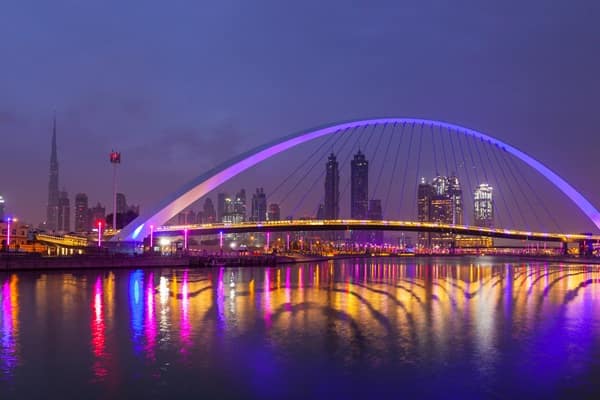The United Arab Emirates has become one of the most secure and transparent destinations for real estate investment. This reputation is largely due to the country’s robust legal framework governing property ownership, registration, and transfer. For investors, understanding how real estate legalisation operates in the UAE is essential to ensuring that each transaction is both legitimate and protected under federal and emirate-level regulations.
Dubai, as the region’s most dynamic property market, serves as the benchmark for legal efficiency. From digital property registration to blockchain-based ownership verification, the emirate has built an ecosystem that balances investor confidence with legal accountability. For international buyers, this environment not only safeguards financial interests but also promotes long-term growth through structured governance and technological integration.
Establishing legal presence before property investment
Before engaging in property transactions, investors often begin by establishing a legal business identity in the UAE. This foundation ensures compliance with local regulations and simplifies financial procedures such as bank account setup and contract registration. Entrepreneurs commonly start with Dubai freezone company formation, which offers full ownership rights, tax benefits, and streamlined administrative processes.
Having a registered business entity is particularly beneficial for investors planning to acquire multiple properties or manage real estate portfolios professionally. A company structure can hold assets, manage leases, and enter contracts under its corporate identity, thus optimising both operational efficiency and legal protection.
Understanding the importance of Ejari registration
Once a property is acquired, registration of the lease agreement is the next critical step. The register ejari in Dubai process is a government-mandated system that records rental contracts with the Dubai Land Department (DLD). Ejari, which means “my rent” in Arabic, ensures that both landlords and tenants are legally protected and that the terms of the agreement are recognised by law.
Through Ejari, the DLD maintains a centralised database of all active rental contracts, making it impossible to manipulate or falsify tenancy information. This transparency benefits all stakeholders — landlords gain enforceable rights, while tenants have documented proof of their legal status. Moreover, Ejari registration is a prerequisite for utilities connection, residence visa renewal, and dispute resolution, making it indispensable to property management in Dubai.
Role of real estate registration trustees
Property registration in Dubai is facilitated through specialised offices known as real estate registration trustee Dubai centres. These trustees act as authorised intermediaries between investors and the DLD, processing ownership transfers, issuing title deeds, and ensuring that all documentation complies with legal standards.
By decentralising these services through trustee offices, Dubai has significantly reduced administrative delays and made the process more accessible. Whether purchasing a villa, apartment, or commercial property, investors can complete transactions within a few hours at a trustee centre, where documents are verified and digitally recorded on the DLD’s blockchain system.
The presence of these trustees also guarantees procedural fairness. Every transaction is supervised by government-certified agents who ensure that payment clearances, identification, and title deed issuance occur in accordance with UAE real estate law.
Legal documentation and ownership proof
The cornerstone of real estate legalisation is documentation. Every buyer receives a title deed issued by the DLD, which serves as official proof of ownership. This certificate includes essential details such as the owner’s name, property type, location, and registration number. It is digitally stored in the government database, ensuring that ownership cannot be forged or duplicated.
For investors purchasing off-plan properties, the legal process involves interim registration until the project is completed. Upon handover, the full title deed is issued, finalising ownership transfer. Both buyers and developers are bound by the DLD’s strict regulations, which require timely delivery, escrow account management, and full transparency throughout the project cycle.
Mortgage and financing legalisation
Many investors choose to finance property purchases through UAE banks. In such cases, the bank becomes a joint stakeholder until the mortgage is repaid in full. The title deed reflects this arrangement by including a mortgage note, ensuring that the lender’s rights are legally recognised. Once the mortgage is cleared, the bank’s lien is automatically removed from the system, updating the owner’s record.
The UAE’s Central Bank and DLD collaborate to regulate mortgage transactions, ensuring that buyers are protected from hidden liabilities or unauthorised financial practices. This dual oversight makes real estate financing in Dubai one of the most transparent in the region.
Digitalisation and blockchain in property registration
The UAE has adopted advanced technologies to enhance real estate legalisation. Dubai, in particular, uses blockchain to store ownership data, preventing tampering and enabling instant verification. Through the DLD’s e-Services and the Dubai REST app, property owners and investors can check title deed information, confirm ownership, and even view transaction history in real time.
This system also integrates with other smart government platforms, connecting real estate records with visa services, electricity registration, and financial compliance databases. The result is a seamless, cross-sector ecosystem that minimises bureaucracy and promotes trust.
Legal framework for foreign investors
Foreign investors in Dubai enjoy some of the most liberal property ownership laws in the Middle East. Freehold areas allow full ownership rights for non-UAE nationals, while leasehold zones provide long-term usage rights of up to 99 years. All such ownerships are registered under the DLD’s jurisdiction, ensuring consistent legal protection regardless of nationality.
However, it remains essential for investors to understand local laws related to inheritance, taxation, and business registration. Legal consultation before purchase ensures that ownership structures — whether personal or corporate — are aligned with long-term objectives and local compliance requirements.
Dispute resolution and legal recourse
In the event of disagreements between buyers, sellers, or tenants, the Real Estate Regulatory Agency (RERA) provides structured mechanisms for dispute resolution. The Rental Dispute Center (RDC) operates under the DLD, handling cases related to rent disputes, contract violations, and property maintenance issues.
This formal system ensures that property-related conflicts are resolved efficiently through documented evidence such as title deeds and Ejari records. The integration of these systems within DLD’s database allows adjudicators to verify ownership and transaction history instantly, minimising delays in verdicts and enforcement.
Investor confidence and market transparency
Dubai’s success in attracting international investors is built on its legal precision and governance. Real estate legalisation not only secures transactions but also strengthens market reputation. Transparent registration procedures, fast digital processing, and clearly defined ownership rights contribute to Dubai’s ranking as one of the most investor-friendly markets globally.
By ensuring that every property transaction is traceable, authenticated, and backed by government authority, Dubai eliminates many of the risks traditionally associated with emerging real estate markets. This confidence continues to draw institutional investors and high-net-worth individuals seeking long-term stability.
Real estate legalisation in the UAE is a model of how regulation, technology, and governance can coexist to create a thriving investment environment. Through the combined efforts of the Dubai Land Department, RERA, and registration trustee offices, every aspect of property ownership — from purchase to leasing — operates within a secure legal framework.
For investors, this means not only owning a property but also gaining access to a system that guarantees their rights, enhances market liquidity, and promotes trust. The UAE’s commitment to modernisation ensures that as the real estate sector continues to evolve, its legal foundation remains strong, transparent, and globally admired.








